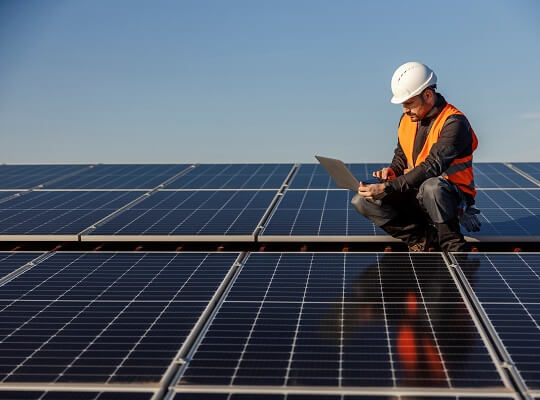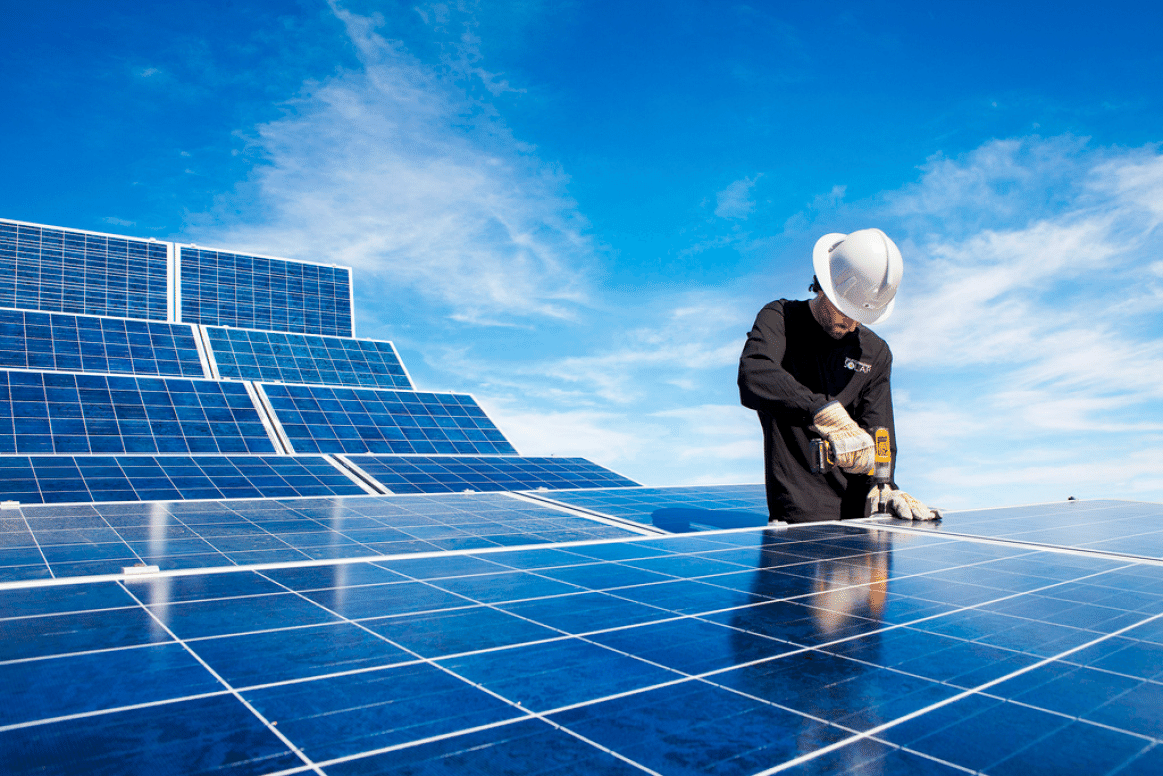How to Pick the Right Solar Power Installment for Your Energy Demands
Choosing a proper solar power installment needs a methodical approach that starts with a clear understanding of your energy intake patterns and expected future needs. Factors such as the type of solar innovation, installation prices, and offered rewards play crucial functions in making an informed choice.
Assess Your Energy Needs
Evaluating your power needs is a crucial primary step in the solar energy installation procedure. Understanding your present and future energy intake will lead the layout of an effective solar system customized to your demands. Begin by analyzing your energy costs from the past year to establish your average month-to-month energy usage, commonly measured in kilowatt-hours (kWh) This information will supply a structure for determining the dimension of the planetary system you may need.
Think about seasonal variations in power intake, as specific months may demand more power due to home heating or air conditioning requirements. In addition, review any type of organized modifications in way of living or home, such as the purchase of electrical lorries or home developments, which might increase your power demands in the future.
Once you have a detailed understanding of your power usage, you can identify the ideal solar capacity needed to meet those demands. This evaluation not just aids in sizing the solar setup yet also informs decisions concerning power storage space options and possible grid link requirements. solar photovoltaic. Eventually, precisely evaluating your power needs ensures that your solar energy system operates effectively, supplying the advantages of renewable resource abreast with your consumption patterns

Evaluate Solar Modern Technology Options
When thinking about a solar power setup, it is necessary to assess the different solar technology options available to make sure the system straightens with your energy needs and budget. The primary innovations include monocrystalline, polycrystalline, and thin-film photovoltaic panels, each offering distinct advantages and downsides.
Monocrystalline panels are known for their high effectiveness and efficiency in minimal room, making them suitable for household installations with less roofing area. Thin-film solar panels are lightweight and versatile, optimal for unique surfaces, but they commonly have lower efficiency and call for more area to generate the very same power result.
In enhancement to panel kinds, take into consideration solar inverters, which convert the straight present generated by the panels right into rotating present for home use. String inverters, microinverters, and power optimizers each have unique benefits that can affect system performance. Evaluating these alternatives will assist you make an educated choice that satisfies your power requirements properly.
Consider Installation Expenses
Comprehending installation expenses is essential for any individual considering a solar power system. These costs can vary substantially based on a go now number of elements, including system size, kind of panels, and installment complexity. A typical residential solar installation may range from $15,000 to $30,000 before incentives, which can be a considerable in advance investment.
To properly assess setup prices, it is important to get thorough quotes from several solar suppliers. These quotes must break down the expenses of equipment, labor, permits, and any additional accessories needed for the installment. Pay attention to the high quality of products being offered, as higher-quality panels and inverters can lead to far better efficiency and long life, possibly offsetting greater initial prices.
In addition, take into consideration the lasting ramifications of installation expenses. A less expensive installation could save cash upfront yet might lead to higher maintenance costs or lowered energy production over time. It is likewise suggested to evaluate financing options, such as solar finances or leases, which can affect your general financial commitment.
Study Local Rewards
Checking out neighborhood incentives can substantially affect the general expense of a solar power installment. Several regions offer a range of economic motivations focused on advertising renewable power use, making solar power much more accessible and cost effective for homeowners and businesses alike.
These incentives may consist of government tax obligation credit ratings, state refunds, and local energy company programs that supply cash incentives or internet metering alternatives. The try these out Federal Investment Tax Credit Scores (ITC) permits you to subtract a significant portion of your solar setup expenses from your federal taxes. State-specific motivations can further enhance these financial savings, typically in the type of straight cash money refunds or tax obligation credit scores.
Furthermore, some local federal governments might supply property tax exceptions for solar installments, guaranteeing that your investment does not enhance your real estate tax responsibility. Looking into these motivations can reveal significant financial savings, which can influence your choice on the dimension and kind of planetary system to mount.

Select a Trustworthy Installer
Choosing a trustworthy installer is vital to ensuring the success and long life of your solar energy system. The installation process dramatically impacts the efficiency and performance of your photovoltaic panels, making it necessary to select a service provider with a proven performance history. Begin by investigating regional installers through on the internet reviews and testimonials. Sites such as the Better Service Bureau can supply insight into client satisfaction and service reliability.
Following, confirm the installer's credentials, consisting of licenses, certifications, and insurance coverage. A credible installer should hold certifications from identified organizations, such as the North American Board of Licensed Power Specialists (NABCEP), indicating a high level of expertise. Furthermore, ask regarding the installer's experience with comparable jobs, specifically in your area, as local climate and laws can affect installation techniques.
Request multiple quotes and compare them not only on price but likewise on the quality of tools and warranties supplied. reference A trustworthy installer needs to supply transparent information concerning their services and products, helping you make an informed decision. By spending time in selecting a reputable installer, you will certainly improve the total effectiveness and durability of your solar energy system.
Final Thought
In conclusion, picking the ideal solar energy setup necessitates a thorough evaluation of energy demands, an understanding of offered solar innovations, and a careful factor to consider of installment costs. Examining regional incentives can enhance financial benefits, while picking a reliable installer makes sure quality handiwork and dependability. solar photovoltaic. By carefully evaluating these variables, individuals can attain an ideal solar solution that satisfies both current and future energy needs, ultimately adding to lasting power practices and cost savings gradually